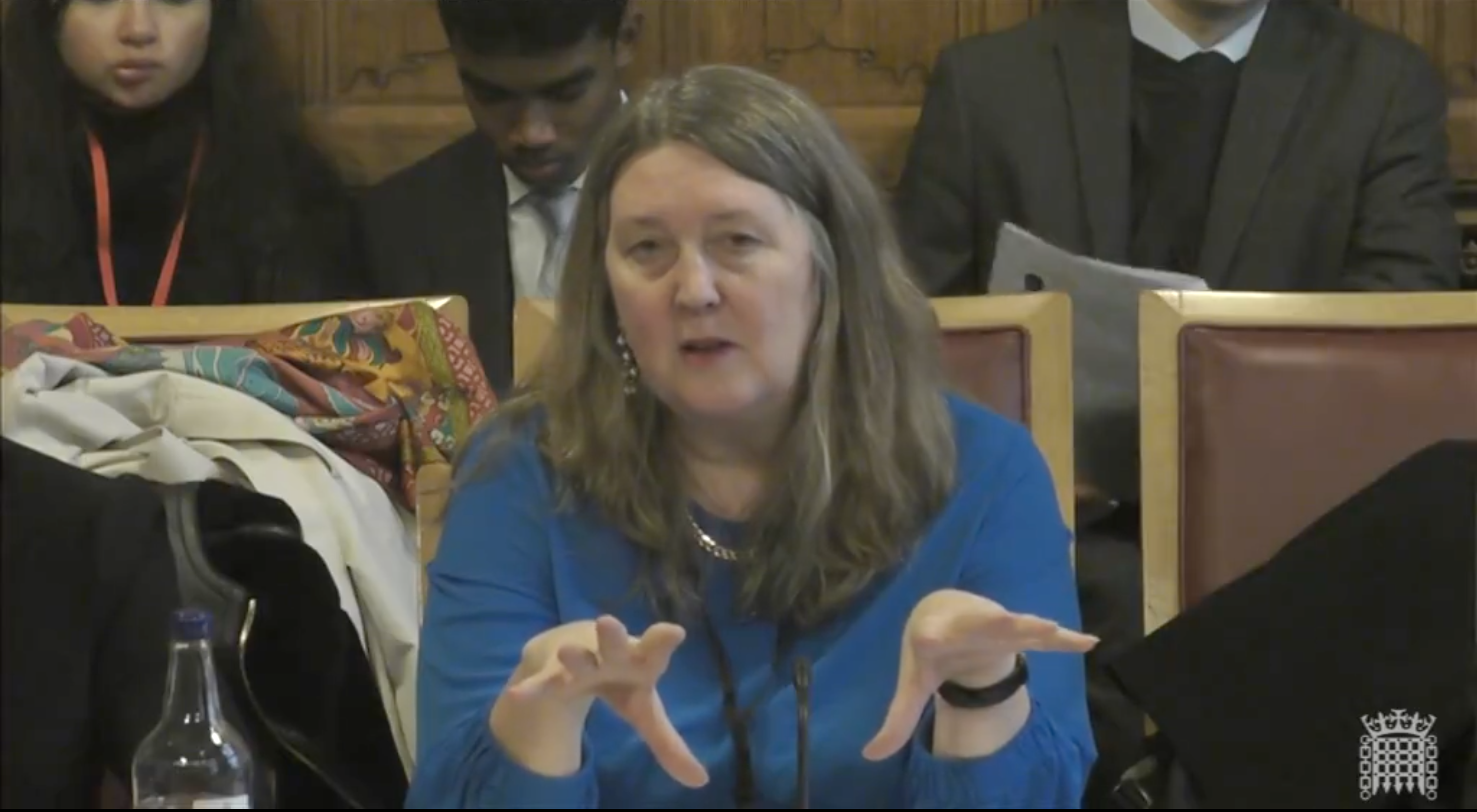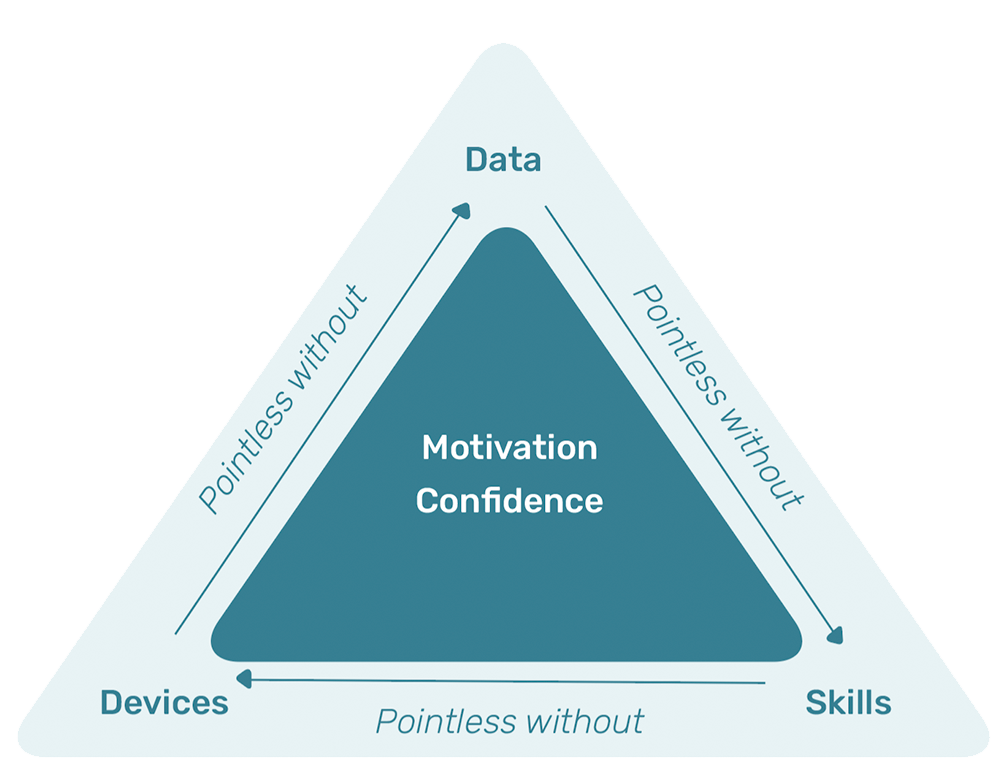Let’s release £13bn of economic growth and fix the digital divide for good
Our Group CEO Helen Milner was invited to give oral evidence about digital exclusion and the cost of living crisis to the House of Lords - here she outlines her contribution to their inquiry
Today I urged the Lords to take digital exclusion seriously.
The House of Lords is inquiring into ‘Digital exclusion and the cost of living’ and I was invited to provide oral evidence alongside the Centre for Economic and Business Research, the Digital Poverty Alliance, and Which?.

I used the opportunity to demonstrate the urgency of the issue – more so now in today’s economic climate – and outline how we can together fix the digital divide, for good.
It was vital to begin the discussion by addressing the severity and need for scalable solutions. Good Things Foundation and our thousands of partners see the damage daily that is caused by leaving millions of Britons behind.
People living without connectivity, without devices, and importantly, who lack the skills and confidence to function safely in the online world is a critical situation. At Good Things, I see first-hand how the digital divide has narrowed but deepened – people are being left further behind. 10 million UK adults do not have foundation-level digital skills and over 1 in 20 have no internet access at all (neither fixed line or mobile) (Digital Nation, 2022).
Developing people’s very basic digital skills is something I have championed throughout my career. When the Covid-19 pandemic hit, it exacerbated and exposed the necessity for skills and confidence AND the need for access to connectivity data and a device (and their pointless without each other, as Kat Dixon’s “Pointless Triangle” demonstrates below). Our bold strategy responds to this, as otherwise communities across the country remain disconnected – from employment, education, their banks, their GPs, and each other.

During the inquiry, the strong economic advantages to tackling digital exclusion were discussed, despite its associations with “just” equality and social justice. Our work with the Centre for Economic and Business Research was referenced to the Committee by my fellow witness Rowlando Morgan, which makes evident that if we fix the digital divide, economic growth will be fuelled by over £13bn in the next ten years (Cebr, July 2022). A return of £9.48 for every £1 invested.
And with our economy stagnating and cost-of-living pressures felt across the nation, such benefits cannot be ignored.
The inquiry honed in on digital exclusion and the cost-of-living crisis, something of which our services are trying to combat by means of the National Databank – providing free mobile connectivity data for people, in partnership with industry such as Virgin Media O2, and Vodafone.
And with 9.4m people expected to look for different ways to connect to the internet this year, we believe that there has to be a number of solutions to challenge data poverty beyond the Databank – including broadband social tariffs (Lloyds Bank, November 2022).
We’re asking Government to promote the National Databank and stop taxing a shocking 20% tax on broadband social tariffs that target the people in our society with the least income. And of course industry is asked to pass the whole of this tax onto the end customers.
We’re also calling on the Government to donate all of their old equipment to accelerate digital inclusion, by means of our National Device Bank. Working in partnership, this service cleans and refurbishes disused technology and distributes it to people experiencing digital exclusion. The purposeful, pragmatic and simple solution is good for people, planet, and our economy – as the cost of giving 5m devices is £750m, whereas donating devices to be refurbed is a tiny fraction of this cost (Cebr, July 2022).
There’s no point in talking about the problem without discussing long term solutions. Good Things and our thousands of partners will continue to provide data, devices, and skills support – breaking down the key barriers to digital inclusion – and we will work with our National Digital Inclusion Network to ensure scalable, hyperlocal provision.
"The UK has the second highest e-waste per head of population of all the countries in the world. If the government could give all the equipment that they have into the Device Bank, it would cost nothing and we would put them into the hands of beneficiaries. That’s sustainable, that’s long-term."
There are now over 2000 community partners in the National Digital Inclusion Network – more than the Trussell Trust has foodbanks! – and almost 1000 of these are local Databanks. We are working hard to continue to grow our Network, from the grassroots up, and reach excluded people who are currently left behind.
But we need the Government to step up and do what they’re good at: lead and invest.
Currently the Government is silent on digital inclusion, and shockingly their last digital inclusion strategy was written in 2014 – there appears to be no plan, no targets, and no ambition. Leadership to fix the digital divide would be a good place for them to start – a plan with visionary targets for what they can do.
With such a clear economic benefits argument, the Government must invest in digital inclusion. Just £30m a year would help us halve the digital divide by 2030 – assuming they donates devices to our National Device Bank, and industry continues to generously provide mobile connectivity data to the National Databank.
"There are definitely things we can do for the long term, but we must start doing things now."
I hope the Lords can get the Government to pay attention, so that they can help to create a fairer and safer society, and bring £13 billion back into the economy. Now more than ever we need to see them step up and help us fix the digital divide – for good.

